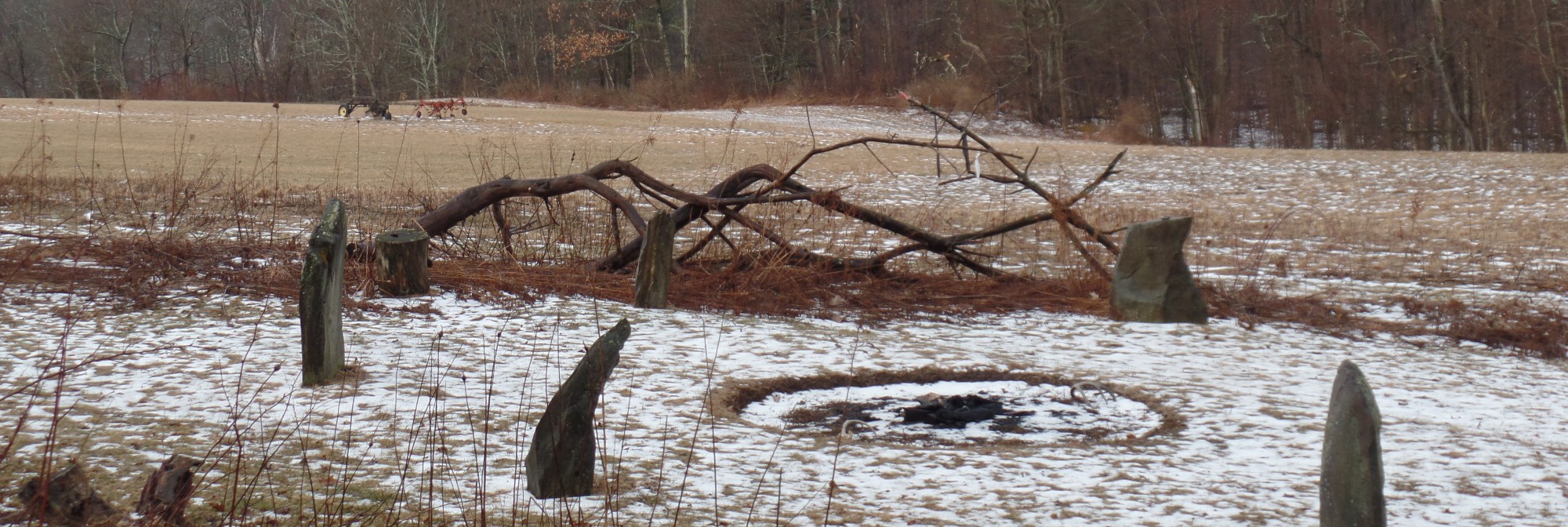
If I were to die tonight or tomorrow
I would need you to know
That I don’t think we are done seeing each other
So it would not be good-bye.
Remember when I told you
How your moon-eyes bring tears to mine?
That was many moons ago!
I am sorry for all the times
Your moon-eyes were hidden by my cloud . . .
Or maybe that was another life
When I was a cloud and you were the moon.
(sigh) My soul is tired of hearing me say, Sorry
So let me skip the thousand excuses
And let this one stand for the rest
Of the reasons I felt so heavy
Climbing the back of the hill yesterday.
Not sorry for getting old before you.
But sorry that I Iost my sense of joy
Along the way! Sorry that I
Lost my way to your smiling eyes!
Yesterday we started our walk together on the road
And at the turn-around I decided to walk home
Through the woods
Over the back of the hill.
The sound of leaves
Crisping under foot was my familiar along with
The smell of last year’s fallen, penetrating
To the deepest chambers of the nautilus of my brain.
Each noisy step a giveaway
That I am coming,
Large and clumsy,
But harmless.
And then it was I saw the feather,
A beautiful wing feather that hawk
Dropped onto that thread of a path
That I should never have taken,
It being bow season in Vermont
And me in brown and black.
Holding that magnificent feather
I could picture it falling, spinning
Pirouetting from a high place in the sky.
But as I walked down into more familiar woods
Within that magical protection
I imagined an arrow entering my heart.
And the hunter, following his arrow,
Finding me with the shaft buried deep in my chest.
And I am saying, Get my wife.
Just go get my wife!
Such a strange poem to write
About love and death
And hawk and your crescent eyes!
But I know why I wrote it.
I wrote it as a hunter
Stalking his own life,
With a hawk feather for my resurrection
Chanting, Here I come!
Here I come!
…………………
Longer poems are like power lines:
Does writing about a poem add anything to a post like this? Sometimes I think the poem is enough all by itself, but, in my experience such is not always the case. Sometimes a poem is like an attractive (for whatever reason) box, that the reader unwraps, appreciates, puts on a (mental) shelf and never returns to, or they share it a few times and forget it. We assimilate some deep or beautiful message or insight or image and that reduces the poem to a shell or wrapping. I would argue that poets do, often, write poems like that, using language (metaphor, rhythm, rhyme, alliteration, story, and all the other elements of poetry) to wrap something up that is meant to be unwrapped by the reader. I make poems like this, but as a poet (as writer and reader) I need more. If the poet starts out knowing what the poem is about I would argue that that makes the poem into an object. And a poem should not be an object, it should be a living thing, with it’s own life-force, it’s own energy.
The kind of poetry I like to read and write is where the poet / (I, as the case may be) is not omniscient and not controlling everything. I don’t want to know ahead of time what my own poem is trying to say. I do want to know enough about the core or the spirit of a poem I am writing to begin to feel qualified to try to write it. The feeling going into writing a poem — that is, if this poem is to be written — should be, This poem needs me to write it. Not someone else — me! At least I have to be in awe of what I am trying to do!
In this poem there are stanzas that are like transformers, step-down transformers, to decrease the voltage, which increases the current, and step-up transformers that increase the voltage which decrease the current.
An example of a stanza that decreases the voltage so the poem can flow better, is a repeat-line like “the back of the hill” and an example of a step-up transformer that increases the voltage, decreasing the flow is a line like “It being bow season in Vermont” because there is voltage being added to the poem with this slightly ominous revelation but the reader has to pause to consider why that is coming up.
All I am saying is, that with longer poems, there is an electric current, a life-force and the poem is like a power line.
What about comparing a longer poem to a stream or river that is flowing down-hill, following a gradient, and like a stream it has momentum? I actually prefer the power line simile for this poem. Imagine it as a power line and try reading it noticing when the voltage is stepped up and when it is stepped down.
